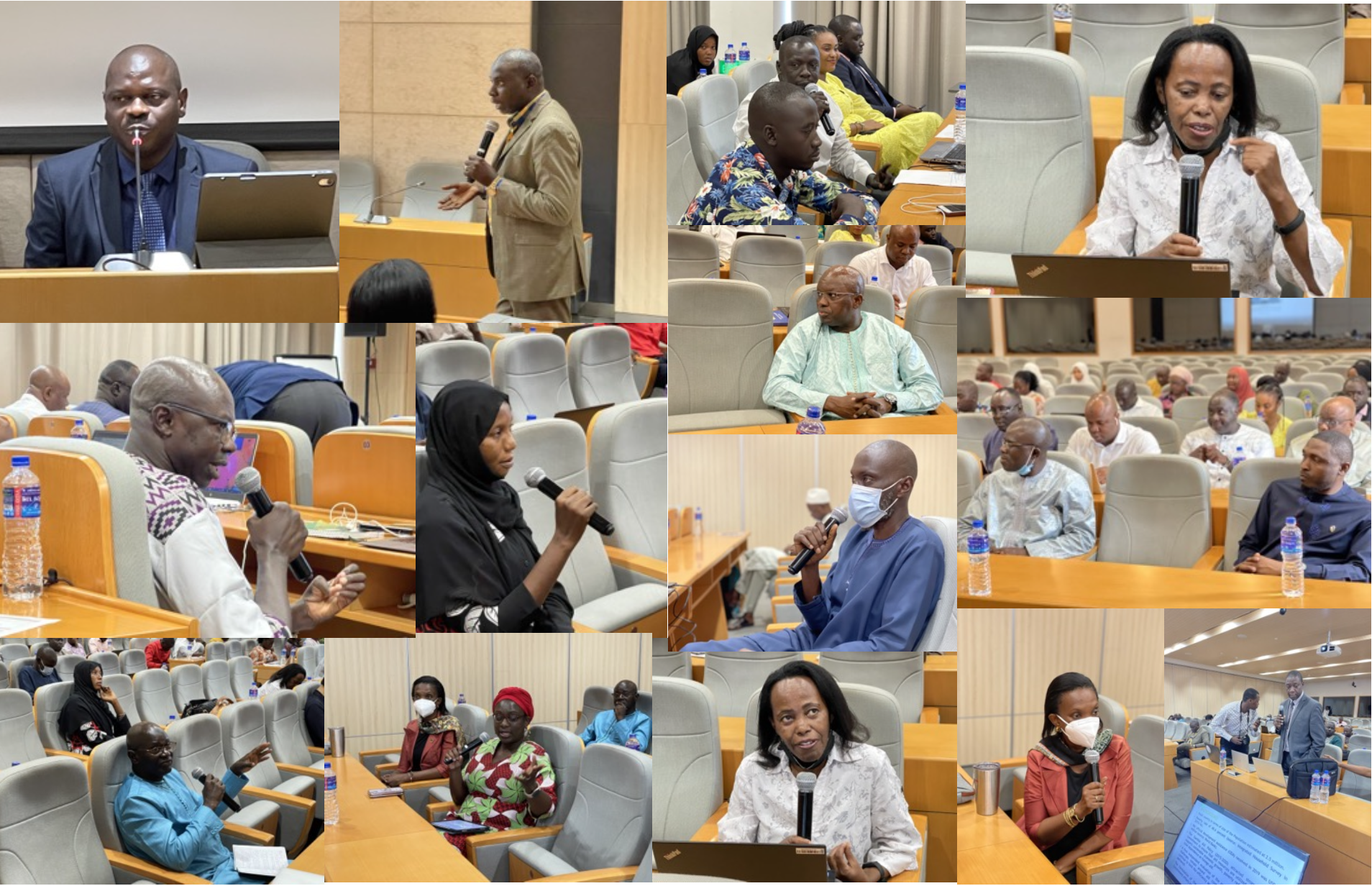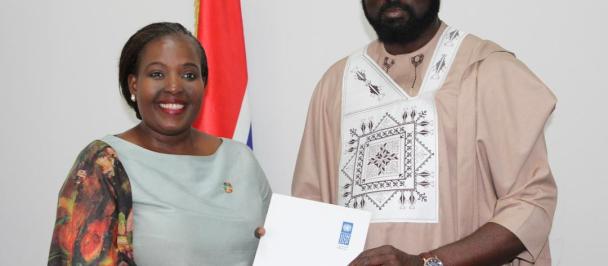National validation workshop of the draft Gambia Aid Policy (GAP) 2023-2032
August 26, 2022

A cross-section of participants at the validation workshop of GAP 2022-2032
On 23 August 2022, the national validation workshop of the draft Gambia Aid Policy (GAP) was held at the Sir Dawda Kairaba Jawara Conference Center in Kololi, in the presence of the Honorable Minister of Finance and Economic Affairs, Hon. Seedy Keita, the UNDP Resident Representative, Ms. Aissata De, other high government officials, development partners, representatives of Non-Governmental Organizations and Civil Society Organizations, among others.
The Gambia Aid Policy (GAP) provides the institutional, regulatory, operational and accountability framework for sourcing and managing external aid resources into operational reality. It represents policy aspirations that require a framework for guided implementation as set by the Paris Declaration on Aid Effectiveness 2005. The rationale is to attain far-reaching results that The Government of The Gambia and all its major development partners have endorsed under international commitments. These key commitments include: Paris Declaration on Aid Effectiveness, Accra Agenda for Action and Monterrey consensus to enhance the effectiveness of aid in producing development results and the most recent, the 2012 Busan Global Partnership for Effective Development Cooperation, that marked the evolution of international development co-operation.
The formulation of the policy was highly participatory and consultative. It also benefited from a mid-term review that captured achievements, challenges, opportunities, and emerging threats. Following consultations with a wide range of stakeholders, the Gambia Aid Policy (GAP) seeks to strengthen harmonization, alignment, transparency and accountability. This will be achieved through a strong governance system and frameworks with a sound financing strategy that seeks to support the fiscal needs of the government's development programmes and projects.
GAP will build on the last policy, which ended in 2020 and the findings of its mid-term review. UNDP supported the formulation of all the previous aid coordination policies in the Gambia. In addition, UNDP provided support for the policies’ periodic reviews and the establishment of an aid management information platform, which facilitated the production of quarterly aid bulletins.
With all its expertise locally, regionally and globally, UNDP can perform three key roles in aid coordination: (i) be a neutral provider of aid coordination services, (ii) provide technical services for aid coordination and management; and (iii) provide substantive inputs in key areas, such as sustainable human development and good governance, that would promote local capacity for aid coordination.

 Locations
Locations
